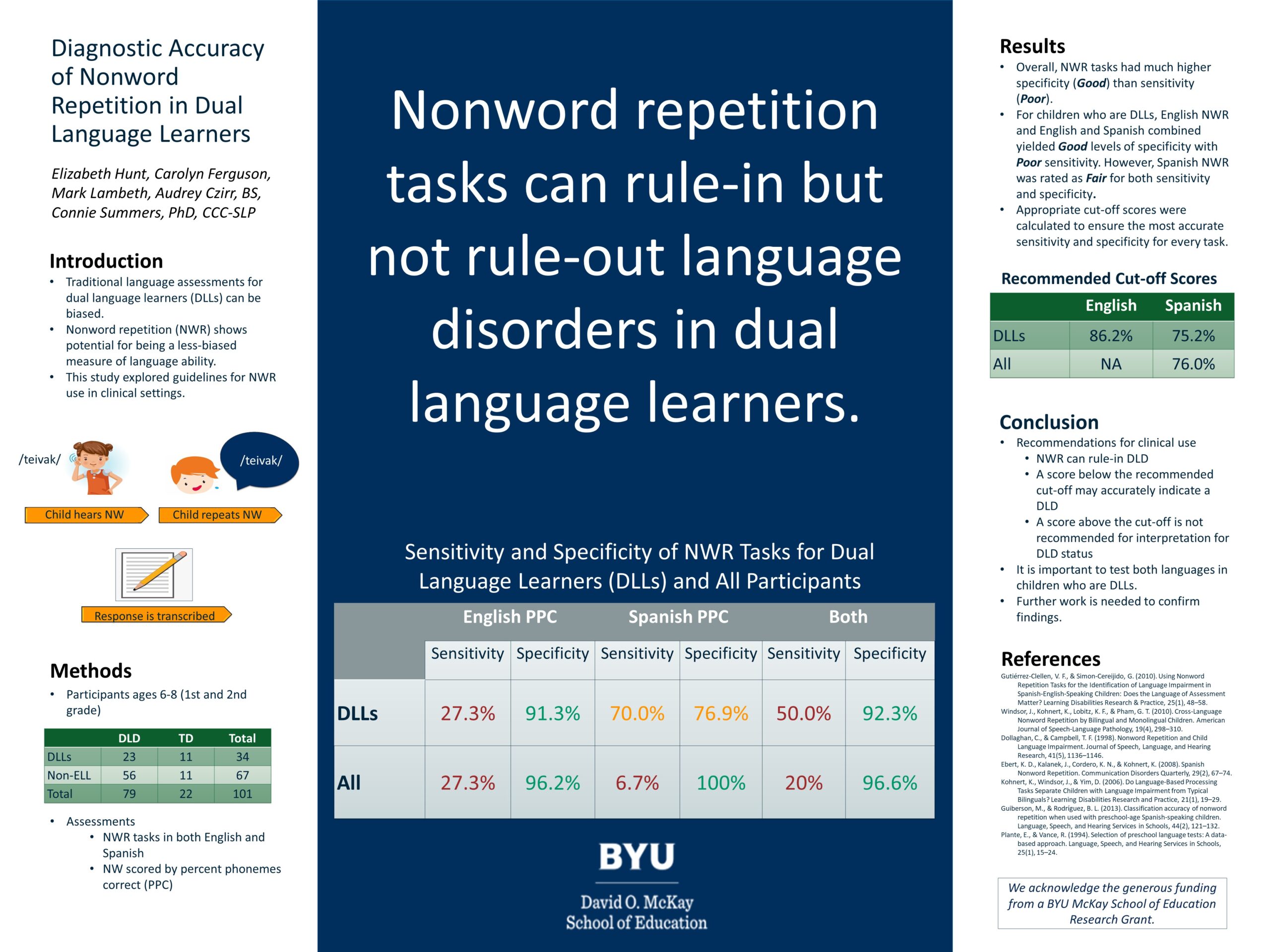Presenter Name: Elizabeth Hunt
Additional Presenters:
Carolyn Ferguson (carolyn.ferguson318@gmail.com ), Mark Lambeth (mlambeth@byu.edu)
Description
Traditional language assessment measures for dual language learners (DLLs) can be biased. Nonword repetition (NWR) shows potential for being a less-biased measure of language ability. The purpose of this research was to establish guidelines for the use of NWR in clinical settings. Diagnostic accuracy and optimal cut-off scores for NWR tasks inform these guidelines. Participants included 100 Spanish-English DLLs from elementary schools in the Mountain West region. All participants were between the ages of 5 and 8 with Spanish reported as the home language. Participants included typically developing children (TD) and children with language disorder (DLD). NWR tasks were administered to all participants in both English and Spanish within classroom settings. Nonwords were scored according to the number of percent phonemes correct (PPC).
Preliminary results showed that the NWR tasks were accurate in differentiating language disorder in DLL children with English PPC and Spanish PPC scores both presenting sufficient sensitivity and specificity. Spanish NWR tasks yielded higher scores for TD and DLD participants alike, when compared with English NWR scores. Appropriate cut-off scores were calculated to ensure the most accurate sensitivity and specificity for every task, as well as every combination of tasks. These findings indicate that NWR tasks are useful clinical assessment tools to evaluate language abilities in DLLs.
University / Institution: Brigham Young University
Type: Poster
Format: In Person
Presentation #A41
SESSION A (9:00-10:30AM)
Area of Research: Education
Email: elizabeth.hunt47@gmail.com
Faculty Mentor: Connie Summers

